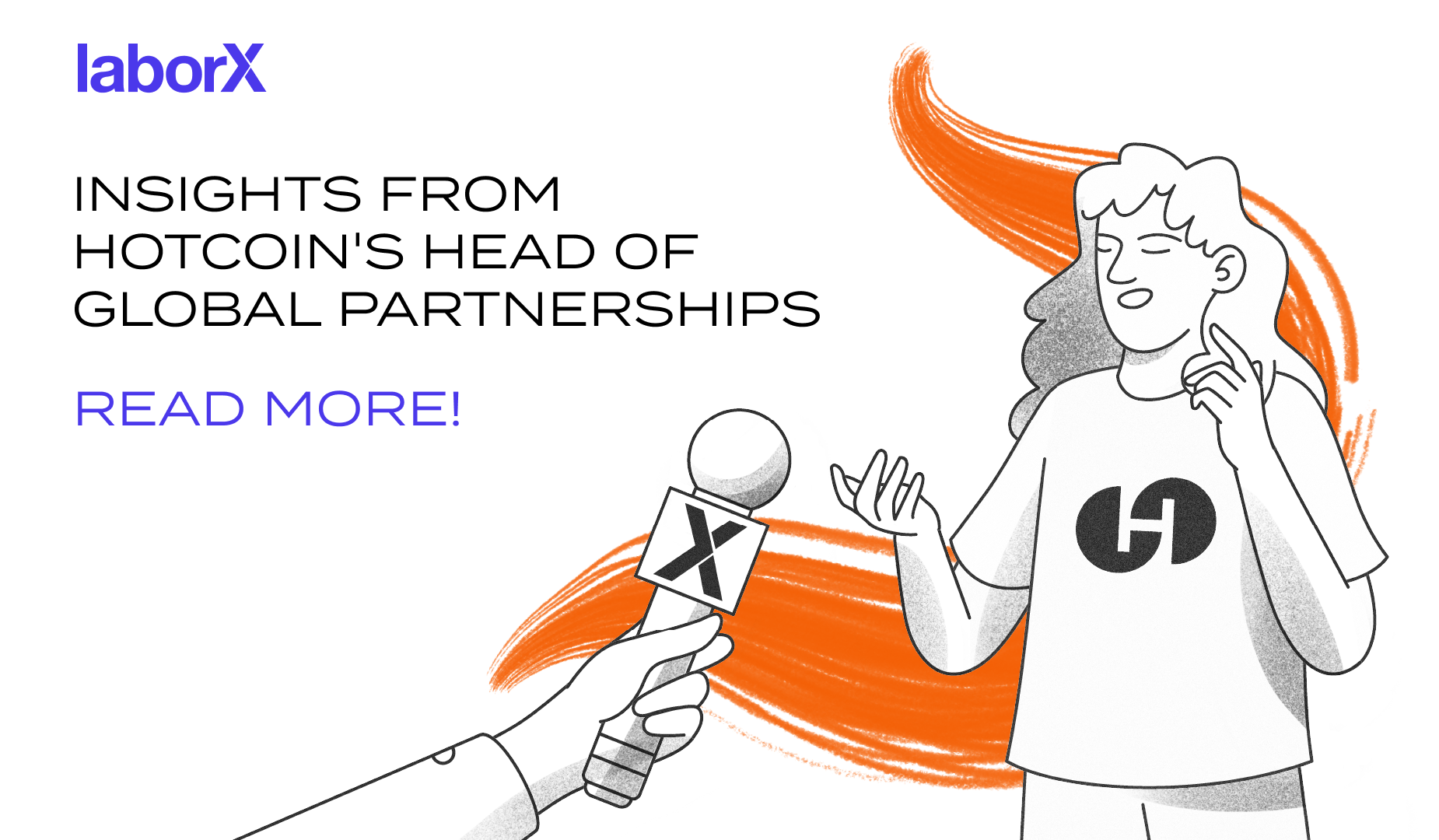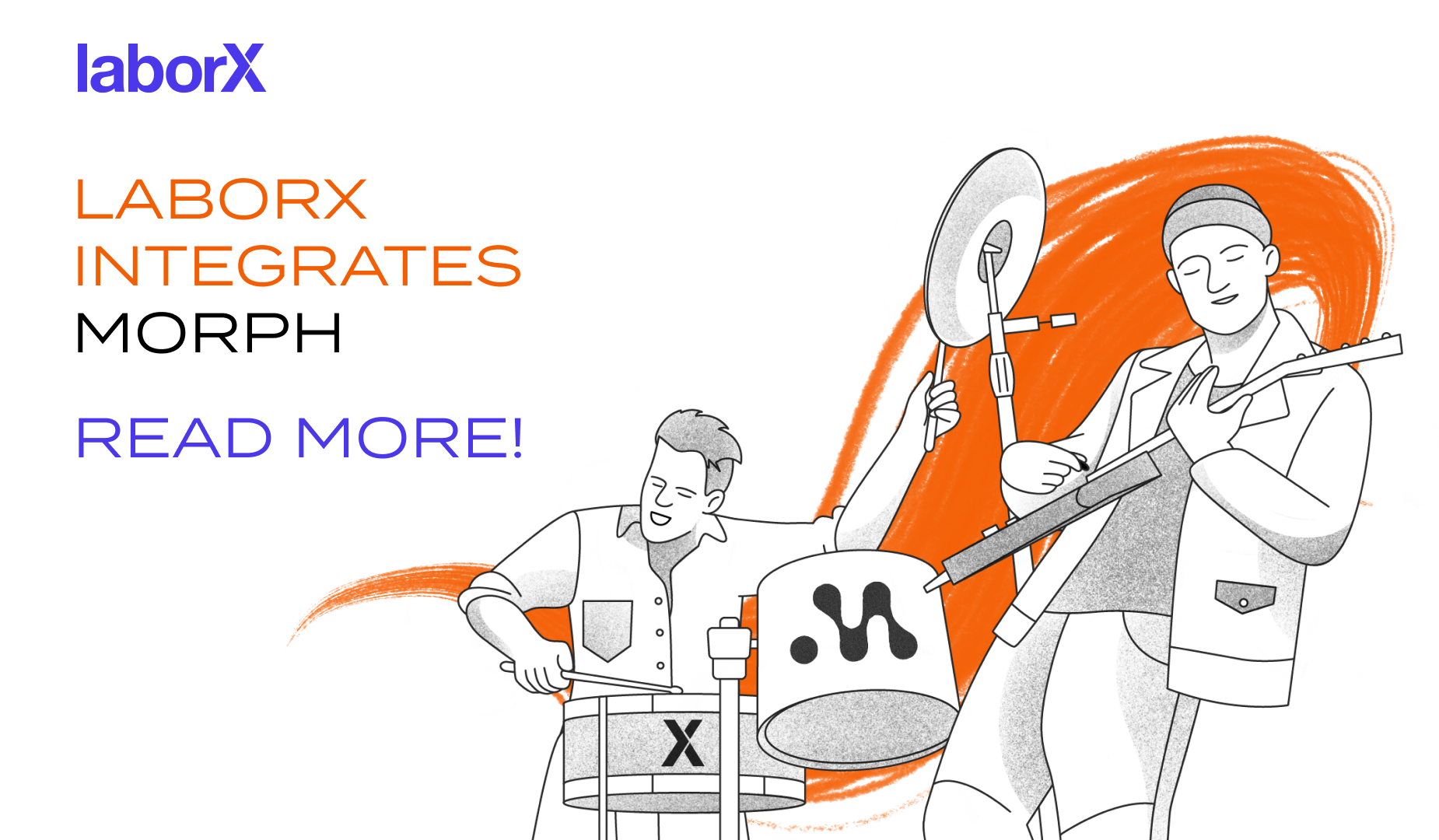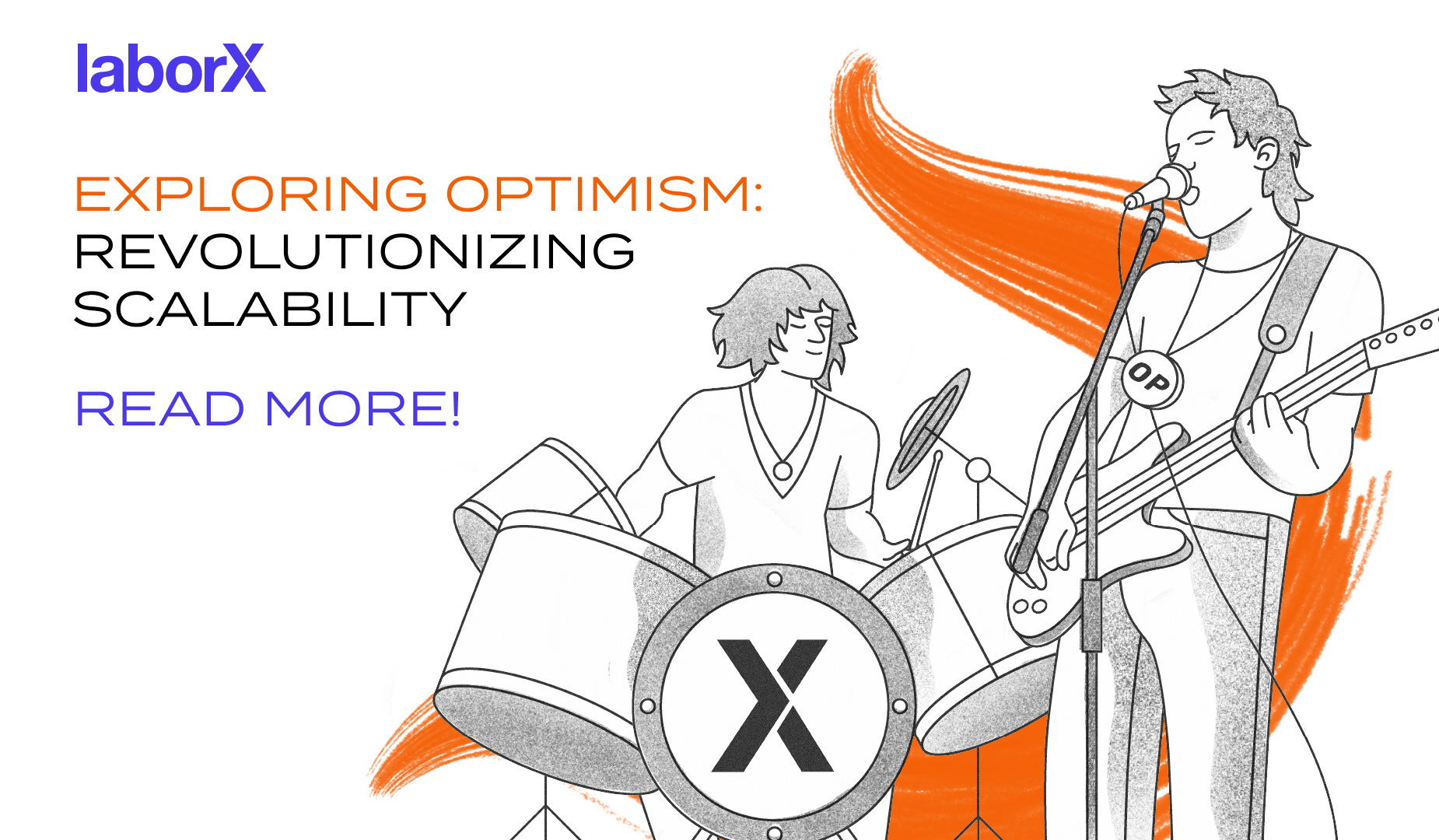With much growth since its 2013 launch, Gate.io is now among the top 10 exchanges globally. The platform boasts a full-service digital asset exchange catering to millions of users globally. Prioritising security and transparency, Gate.io takes pride in having undergone audits that provide 100% proof of reserves, ensuring a reliable and trustworthy trading environment.
So what is the secret behind all these achievements? Just like the rest of the market leaders, Gate.io has maintained its remarkable growth rate thanks to its exceptional team.
Web3 Talent Crunch: Adapting and Innovating
The demand for skilled Web3 talent has surged, revealing a significant gap in the availability of professionals. Working in the blockchain space requires a unique set of skills, a deep understanding of technology, and a fair share of enthusiasm. The majority of cryptocurrency exchanges are having a hard time coming up with innovative ways to attract such niche talent.
On the plus side, Web3 has paved the way for a new style of working. The rise of remote-first and even remote-only jobs has become a hallmark of the era. This paradigm shift is especially relevant for crypto exchanges, which operate around the clock across different time zones.
Gate.io is one of the few companies that has figured out a well-balanced way to thrive in this challenging environment. Rather than viewing obstacles as roadblocks, the Web3 market leaders tend to see them as opportunities to cultivate organic, cutting-edge solutions.
In an exclusive interview with Nelson Lopez, Gate.io's Global Head of People, we delve into the company's approach to Web3 hiring, gaining insights into the challenges faced and the strategies employed.
From the intricacies of joining the Gate.io team to first-hand advice on thriving in the blockchain space, we take a glimpse into the busy world of Gate.io and the evolving landscape of Web3 hiring.
Please share a bit about your journey and background. What led you to become the Global Head of People at Gate.io?
My first contact with HR was over 12 years ago, and I’ve since worked in people management with major consultants, multinational engineering companies, Web2, and now, Web3!
I first got involved with blockchain in 2019, over a project called Helium which at the time showed immense potential and a very clear use case for the philosophy of decentralisation. I was one of the first people to develop its infrastructure in the country, onboarding users, creating a community, and basically, got hooked on what we know today as Web3. My free time every day quickly became occupied with it, as I studied it keenly and got involved with more communities, founders, and projects, to learn and contribute to their People vision, operations, processes, etc.
In early 2021, the opportunity to join Gate.io came up, and at the time, I had decided I wanted to make Web3 my whole life. Contributing and building within a Tier-1 CEX was a dream, which I still find rewarding at so many levels to this day. So after a thorough process, I joined as the Head of People for our International Affairs Division - the Global branch of Gate at the time, to build the full scope of People strategy and operations from the ground up.
About a year later, I was offered to join the core division as the Global Head of People steering top management and operations across the globe, surrounded by brilliant People professionals who make it all come together.
How would you describe the culture at Gate.io, and how does your personal background influence the company's approach to HR and team management?
Coming from Consultancy, Engineering, and Web2, I place an enormous amount of value in proactiveness, continuous improvement, and agility - all of these are tenets of each industry I’ve been in.
Regarding Gate.io, keep in mind we’re a top CEX in this environment, so it’s a hard game in a tough field. This definitely has an influence on our culture. We play to win. We’re good at reading the landscape, formulating a plan, and adjusting quickly as we run to the goal line. This is mainly due to a particular set of qualities I encountered when I first joined, and which I’ve since made a point of maintaining and embedding: Organisation, Precision, Proactive Communication, Time Management, Independence, Self-discipline, Punctuality, and Accountability.
This is something we continuously integrate, map out, and measure, as a “true North” and source of reliability regardless of external conditions.
How big is the team, and how has it evolved over the years?
I’m very lucky to work with a team of nearly 20 dedicated, impactful, and driven People professionals, who currently span functions from Leadership, CoE, Specialists, Talent Acquisition, and HRBPs.
We’ve made adjustments naturally, mainly due to the market and internal needs, taking very special care to ensure development and growth, as well as retention when the market got difficult.
Size-wise, the teams that have seen the biggest growth are Talent Acquisition and the HRBP’s, as expected from the overall organisational growth we’ve had, even the bear market.
Does Gate.io operate with a fully remote team, or are there key hubs where team members collaborate in person?
The vast majority of our colleagues work fully remotely, and that has been our policy for quite some years now, so we have an amazing level of maturity in remotely developing teams, processes, and goals as a cohesive organisation. Not only this, but we also have several local operations across the globe where hybrid solutions are tailored to meet local organisational and team needs.
Can you share insights into the company's approach to remote work and how it impacts team dynamics and productivity?
At this stage, remote work is our default setting, as we make it both distributed and decentralised - also concepts that often get confounded but are not the same. This means we’ve been ahead of the curve, ensuring that as an organisation we’re ready for the future of work both in the technical and human sense, leading change instead of resisting it and embracing the natural evolution of People’s needs.
So it’s never a one-size-fits-all solution, which is a common mistake we avoid, but taking the time and care to understand that no single variable is absolute and that an ideal design comes from factoring in multiple aspects like delivery, process integrity, and happiness.
How does Gate.io maintain a healthy work-life balance, especially in an industry known for its around-the-clock nature?
Excellent question. This one goes back to yet another benefit of remote work. Yes, business goes around the clock, and so does the globe with our distributed teams. This means no one person or team has to be up 24/7.
Our team processes and responsibilities are built with specific overlaps for key processes, according to the market, timezone, and vertical needs, so that over a 24-hour period, no single key process is left unattended. As an organisation, we don’t stop, but our colleagues can. Isn’t distributed work beautiful?
We also train and coach key process holders for high levels of empowerment, autonomy, and understanding so that quick-fire decisions aren’t dependent on a single point of input, and this is where the decentralised part comes in.
So it’s all about actually making the effort to design your processes to allow teams to give their best at work and get the most out of it. Whether companies are willing to commit to this effort is usually a good litmus test of how serious they are about work-life balance. Which, as a side note, isn’t all about time management.
It’s also about your physical work environment, which we’ve covered already. I, for instance, would much rather have a 5 a.m. call from home than a meeting at any time of day in any office. But that’s me.
Describe the dream team member: what unique skills and quirks would they bring to Gate.io?
I would say first and foremost, they need to bring the dream of contributing to the world’s financial education and independence. This is the best possible place to do so. And knowing this is the culmination of every single act you do, no matter how small, challenging, complex, or long, is what carries you when the industry imposes its whims. This is also a good litmus test in recruitment processes. Consider how much you care if what you’re involved in contributes to the betterment of the world.
Regarding the skillset, I’d refer back to the ones I mentioned before: Organisation, Precision, Proactive Communication, Time Management, Independence, Self-discipline, Punctuality, and Accountability.
For quirks, and I never thought about this, I’d say having a Web3-first mindset. Being a real native is what will make you look at everything through the Web3 lenses and come up with new ideas, capitalise on trends, and find opportunities, all of which make businesses move fast - and we know how much that’s paramount in this industry.
Can you tell us about any unique employee benefits or initiatives?
We’re very glad to offer what’s now typical for us in terms of flexible schedules and working conditions, remote work settings, and global company events. I remember one of my fondest and first experiences was organising a 1-week meetup for all our Europe-based colleagues. Health and welfare benefits, bonuses and allowances, and so on. But more interestingly, and on the unique side of things, we have fun tailoring special gifts for our colleagues: from NFTs, tokenised rewards, and Web3 vouchers to highly coveted special product campaigns. Either way, both in the classical or the Web3 benefits, it’s also not a one-size-fits-all, so we adjust accordingly to relevance, internal policies, and external compliance.
How would you describe the culture within the team? Are there any core values or principles?
One of the things I love about Gate.io is how much it reflects the best of the Web3 culture. So much of what we do and how we do it is pinned on the core qualities of purpose, collective progress, and curiosity.
It’s easy to see how they connect to our Values even: Integrity, Insight, Innovation, Purpose, and Cooperation. We also make sure each one of these cascades into four observable and measurable behaviours, which we support our colleagues in assessing and developing.
How does Gate.io support the continuous learning and development of its team members? Any opportunities for professional growth?
Continuous development is a huge part of our investment in People. [We thrive on] external partnerships and opportunities, learning paths tailored to progression, and valuing our knowledge internally in sharing sessions and projecting it externally at the biggest conferences.
Professional growth is also at the centre of our scope at Gate.io, where the purpose is to build up our talent pool for the ongoing opportunities we generate here. Whether using vertical progression, lateral cross-moves, development programs, or others, even during the bear market, we’ve had very significant mobility rates this past year.
Are there any unique traditions or rituals at Gate.io that contribute to a positive and engaging company culture?
For sure! Our knowledge-sharing sessions keep us all aware of the amazing expertise we have internally, updated on new skills, and in touch with the right people to unblock the right issues.
Also, we hold cross-functional team meetings to share and discuss weekly news in Web3 and how we can make it work to our advantage. This one is a huge success. We hold welcome calls to classes of our most recent new joiners, which I personally deliver, so I get to know them and they get to know me as someone at hand for any situation.
And of course, we arrange Townhall meetings with our CEO and C-level leaders to share institutional news, goals, and steering.
From an HR perspective, what advice would you give to someone aspiring to build a career in the blockchain or cryptocurrency industry?
Ah, I’ve actually given talks on this topic, so this is fun. Considering Web3 to have such live communities, the first organic approach taps into different ones. Find projects you’re passionate about and be active in their channels.
Over time, you will have built a footprint there that will get you noticed. Understand this and manage it proactively. Then, once you have a track record you’re proud of, approach these communities’ leaders, projects, companies, and showcase how you’re invested in what they’re building, how you’re engaged, and what more you’d love to do.
Projects are always very keen to find talent in their communities, as it validates their vision and potentially saves them a lot of money from external talent sources. So get involved, network heavily, and understand the ecosystem. There’s a channel out there looking for you right now!
Another useful approach is looking up Web3 recruitment channels on Discord and Telegram, where projects and talent get to talk to each other announcing roles and skills in an open marketplace. This one is also close to, in a true sense, decentralising your job search.
A third path is to bookmark several job boards and visit them often. Keep in mind that using your skills to help build projects typically starts with building a repertoire of part-time engagements, so platforms like LaborX are, coincidentally, a great place to start.
All in all, it’s an ongoing investment on all fronts, and getting them into your routine isn’t difficult when you are passionate about Web3 and excited to take the deep dive.
And for making it this far in the conversation, here’s an insider’s tip on what we look for in candidates that will place you ahead of 90% of the competition. Make sure you cultivate and are able to share evidence of your Web3 education, the ability to work distributedly, and align with the project’s culture.
Name the top three challenges in the Web3 hiring process.
Certainly. In the dynamic and evolving world of Web3, recruiting top talent presents several unique challenges. Firstly, we're dealing with a nascent field where the talent pool is relatively small. Blockchain, decentralised finance, and other Web3 technologies are still emerging, making it challenging to find individuals with extensive experience. This scarcity means we're often in a highly competitive environment, seeking out those rare experts who have both the skills and the experience.
Secondly, assessing candidates goes beyond just their technical abilities. In Web3, adaptability, the ability to learn quickly, and a strong alignment with the decentralisation ethos are crucial. These soft skills, along with a candidate's fit within a typically remote and fast-paced working environment, are just as important as their technical knowledge. Finding individuals who embody these qualities is a nuanced task, requiring a deep understanding of both the industry and the human elements within it.
Lastly, the rapid technological changes in the Web3 space pose a significant challenge. What's relevant today might be outdated tomorrow. Therefore, our focus isn't just on current expertise but also on a candidate's potential for growth and adaptability. It's about finding those who are committed to continuous learning and can evolve with technology.
In essence, recruiting in this field demands not just a keen understanding of the current landscape but also a forward-thinking approach, where potential and adaptability are valued as highly as existing expertise. It's about building networks, fostering long-term relationships, and staying attuned to the ever-changing tapestry of Web3 technologies.



